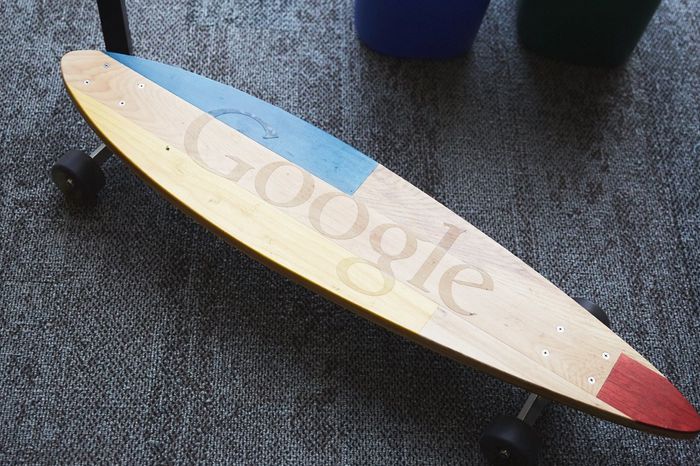‘We think greater AI integration will only serve to improve the relevancy and convert on ads,’ one Pershing analyst says
‘Google’s current valuation represents a fantastic opportunity to own one of the most advantaged scale players in AI with an unmatched business model and a very long runway for growth.’
— Pershing Square investment analyst Bharath Alamanda
A selloff in Alphabet Inc. shares, fueled by artificial-intelligence fears earlier this year, offered Bill Ackman’s Pershing Square Capital Management an “attractive” entry point into the search-giant’s stock, one analyst explained Wednesday.
Speaking on the Pershing Square Holdings PSH, 0.74% earnings call Wednesday morning, investment analyst Bharath Alamanda said that AI fears “overshadowed the high-quality nature” of the Google parent’s business, and he argued the stock GOOGL, -1.35% GOOG, -1.34% still looked appealing even after a 30% run-up relative to Pershing’s cost basis.
Pershing disclosed earlier in May that it amassed a new position in Alphabet during the first quarter that amounted to 10.3 million shares across the Class A and Class C classes. That position was worth upwards of $1 billion as of the end of the quarter, though Ackman said Wednesday that Pershing’s average cost was about $94 to $94.50 a share.
See also: Alphabet heads for milestone not seen in a year as stock proves popular with big funds
Alphabet’s Google search and YouTube businesses represent “two of the highest-return and most resilient ad formats,” Alamanda said, according to a transcript provided by AlphaSense/Sentieo. That positions the company benefit from the digital-ad market’s “structural growth.”
The Pershing team also liked Alphabet’s margin potential, even though the company doesn’t have the best track record. Alamanda acknowledged that Alphabet saw revenue almost double since 2018, all while core Google margins only increased by 100 basis points. But the company seems to have found religion on cost discipline, he noted, illustrated in part by a move to cut 6% of staff earlier this year.
“Given the fundamentally fixed cost nature and high incremental margins associated with their core search business, we believe Google should be able to deliver operating leverage while continuing to invest in AI,” he said. “And moreover, Google’s Cloud segment reached breakeven profitability for the first time this quarter and margin in that segment should continue inflecting higher,” since Amazon.com Inc.’s AWS cloud-computing business has nearly a 30% margin on the basis of earnings before interest and taxes.
Alamanda cheered Alphabet’s “defensive balance sheet” and capital-return efforts, flagging that cash makes up roughly half of Alphabet’s market cap, while the company repurchases about 4% of its shares annually.
Pershing’s team thinks that AI concerns about Alphabet are overblown given the company’s leadership in the technology and its far-reaching platform.
“The company’s incredible scale and the deeply ingrained consumer habit of Googling gives them the largest distribution channels to roll out AI into search and their suite of consumer apps,” Alamanda said.
What’s more, Google executives teased at a recent event the ways it plans to use AI in service of advertising customers.
“We think greater AI integration will only serve to improve the relevancy and convert on ads and increased advertiser ROI [return on investment] and monetization,” Alamanda continued.

